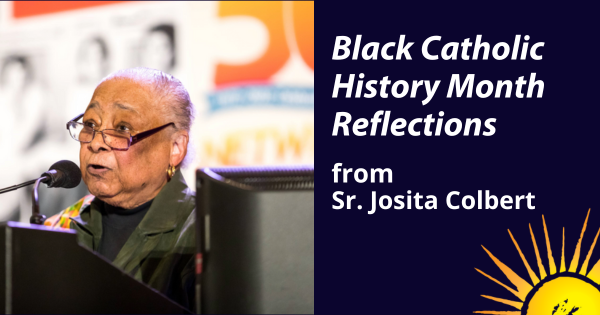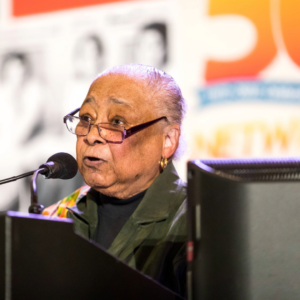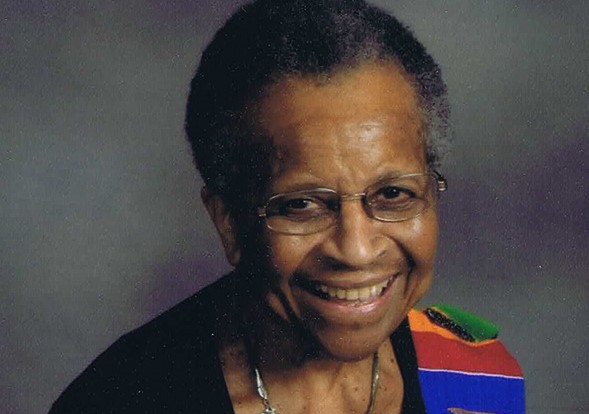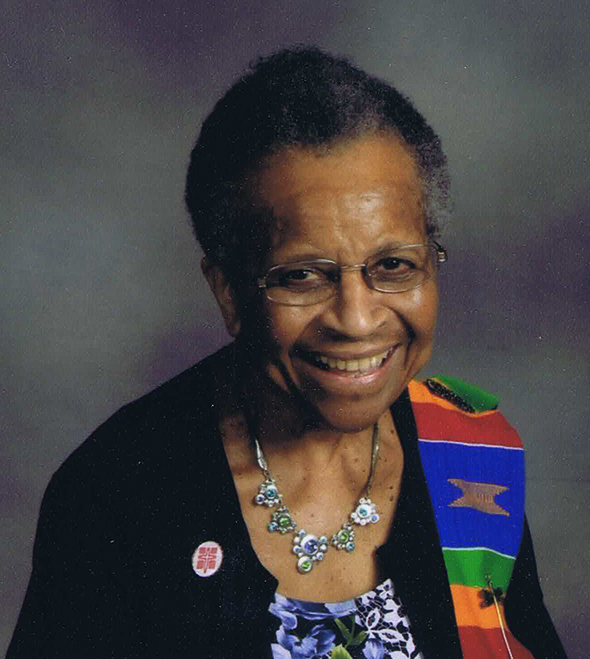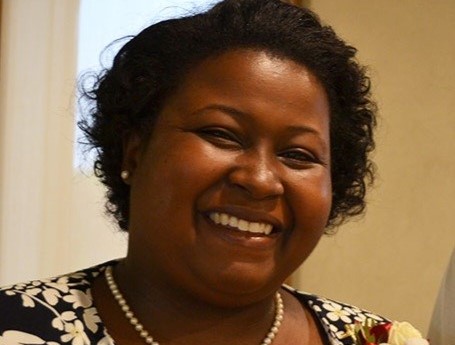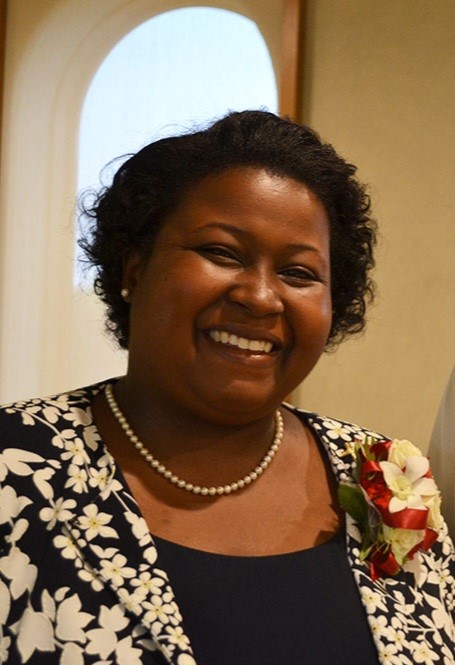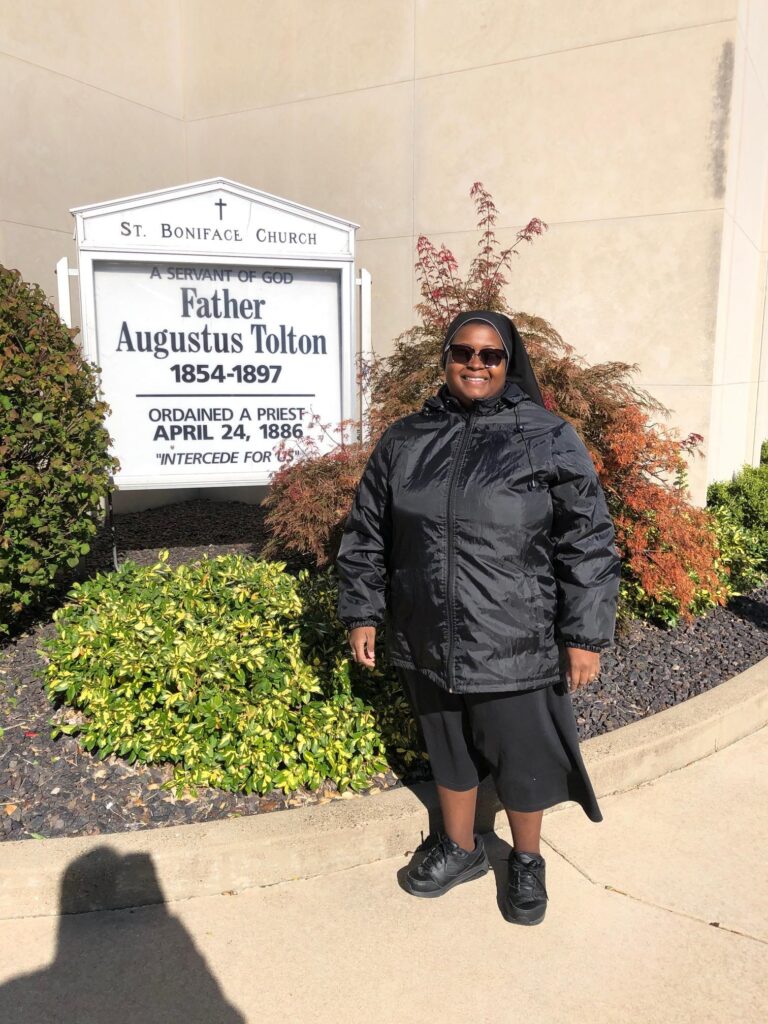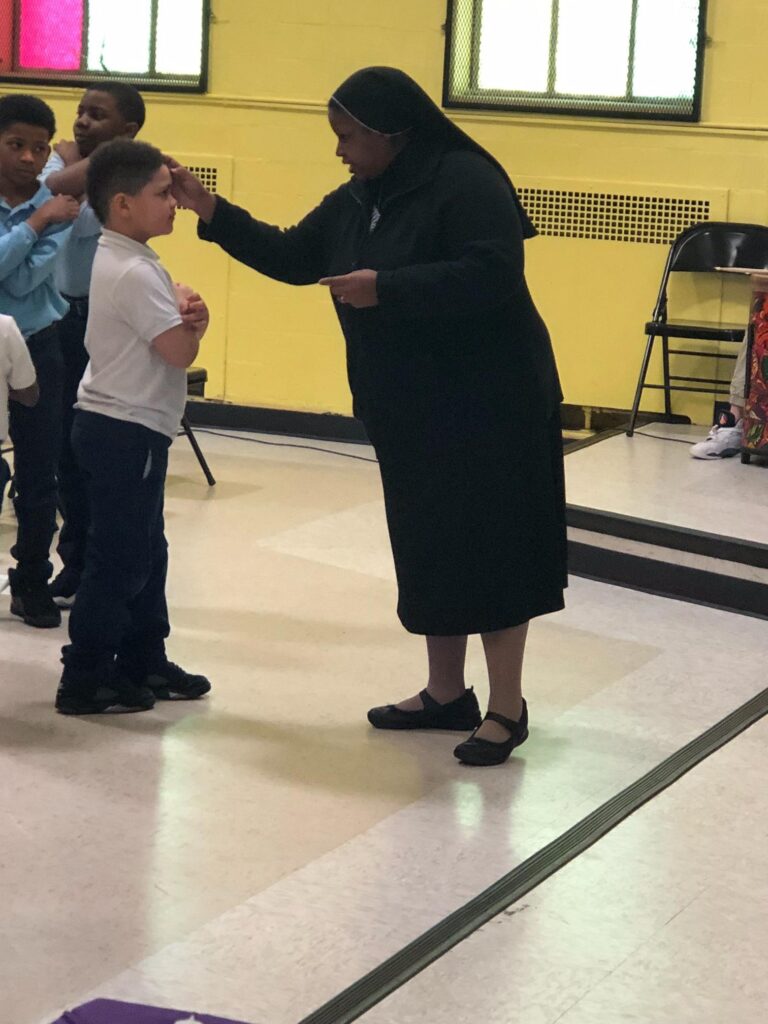Black Catholic History Month Reflections: Sister Josita Colbert, SNDdeN
Susan Dennin and Virginia Schilder
November 29, 2023
Sr. Josita’s involvement in Black Sisters’ organizing began in August 1968, when Sr. Martin de Porres Grey, a Mercy Sister in Pittsburgh, organized a weeklong conference for about 200 Black Sisters at Carlow College. This was the beginning of the National Black Sisters’ Conference.
“[At that conference,] there was a lot of education about what the Black Power movement meant. It was an educational and spiritual experience. There was singing and music that made liturgy much more meaningful. We had a Black priest there, and at the first Mass, Sister Teresita Weind, SNDdeN preached. It was so refreshing there, even though the meetings were long! And we had speakers who would come in. They were really trying to explain the whole system of the Black Power movement and Nguzo Saba principles. We had Jesse Jackson… a lot of famous speakers. It was a little over a week, the first time we met. We met a couple of times at Carlow, and then we moved marto Dayton.”
A central theme of those early meetings, according to Sr. Josita, was that coming to know and love oneself, especially as Black women religious, is critical for being able to teach and empower others.
“During that time, the organizers were trying to help us learn about ourselves and appreciate who we were as Black religious women — but also how to better empower those who we taught, because most of us were teachers. It was almost like a reeducation, in terms of how we could teach differently, especially about Africa. It was learning to respect our people, the way we look, our hair, our features… that they are all beautiful, and God made us. It was a whole learning of oneself, and respecting of oneself. The intent was that if you believe these things about yourself, and internalize them, then it’s reflected not just in what you tell other students, but what they see.
We had workshops that would empower you, whether it be in spiritual direction, or working in civic, political, or church activities. They taught us how to enhance those who you were responsible to, and how to build their leadership skills. I think my style of teaching was different as a result of going to the conference.
When I think back about it, my own family and the people in our church— lay people who led various activities—they also taught us these skills, and about taking on responsibilities. My family was very active in the church, and they were very open and accepting of people. When I came to the conference, they were telling us about being open and sharing with others the skills you have. That’s what the people in the church did. That connected with me, in terms of how I taught and interacted with others. I learned not to have rash judgments of people, and instead to try to accept them.”
Sr. Josita cited a few Christian principles of Nguzo Saba as central in her formation:
“One was Nia: having purpose in whatever you do. When I think about the life of Jesus, or some of the early saints, they focus on what they were called to do, and helping others learn more about God and themselves. Another one is Imani: faith, and believing in God. I look back to my family: they were faithful in what they did and how they treated other people. It’s believing in God, that God will see us through, and also believing in yourself. And certainly if you do that, then you have a belief in others and a respect for the personhood of other people.
And then the other is a long word, Kujichagulia: self-determination. That’s what the educational part of the conference was all about. You hear so many negative things about Black people; you hear about those orders of priests and nuns who would not readily take in Black women or Black men simply because of the pigmentation of their skin – blatant racism. Self-determination meant to me to be focused on what you’re supposed to be about, as a Black religious woman, as a Christian. Focus on that. Don’t dwell on the negative stuff, because it gets in the way of the mission, what we’re supposed to be doing.
Those are the three principles that I stuck with, all relating to God and to self.”
Sr. Josita shared about her experiences of Black Sisters working together, providing support to one another and to young people, as advocates and mentors. In particular, she spoke about supporting Black women in vocations to religious life.

Sr. Josita Colbert, SNDdeN speaks at NETWORK’s 50th anniversary celebration in Washington in April 2022.
“I try to tell younger ones today, when they talk about what they go through, to focus. … I have had opportunities to do workshops in various parishes. These have been learning opportunities for me, helping students and young people to be involved in their churches, to be active members of the church. There are a lot of African American youth that were so involved in their communities, but not in their Catholic Church because we didn’t provide them with opportunities. They have to be a part of the conversation.
In those days, we had a committee. If one of the younger sisters had a problem, we’d ask to speak with the superior, and work with them, to be advocates and mentors. We’d work with Black sisters and with the community.
We’d also have conversations with leadership of various communities, to talk about tips for working with and inviting African American women to religious life — and what to do when they’re there, visiting all-white communities. In the early days, we tried to educate white religious communities, but it didn’t seem to change the behavior. Most women would say, ‘We’ve never been around Black people.’ And then you point out, ‘What about sister so and so?!’ Were they invisible? They weren’t seen.
One sister called me and said, ‘Things in 2023 have not changed – what did we do back in the 60s and 70s?’ I said, I’m doing things differently. It may be through writing, talking, engaging, having meetings with LCWR, with the National Religious Vocations Conference… we need to get on those committees. Shirley Chisholm said, if you go to the table and there’s not a seat, take a chair up there! We were trying to explain that God calls Black people to the religious life as well. … And it was so important to know that there were others doing the same work. You could call people, you could write – you knew there were others out there doing the same thing.
Most of my life I did teaching and then I became a vocations director, listening to women’s stories. I worked with women who were white, Black, Latina. It made no difference: [they shared] what they felt God called them to do.”
Sr. Josita also spoke at length about the role Sr. Thea Bowman has played in her life, especially as a source of courage and grounding in clarity about “who and whose you are.”
“You are Black, you are Catholic, you are a religious woman. You bring yourself to the Church. sr. Thea’s thing was that, you don’t turn me off because I’m Black. At a conference, she sang a Gospel song and people would look at her strangely, not realizing she was a keynote speaker.
Her thing was that you had to be clear about who you were, and feel certain about that, so that you don’t let anyone tear you down because of who you are. [It’s about] doing the right thing, being like Jesus, and if you’re religious looking at your mission statement and constitutions that are written so very beautifully, being accepting and open…
We as humans sometimes do just the opposite of the things we’ve written. What is our mission statement trying to guide us to do, and what does that mean to me as a Black woman? Sr. Thea spoke truth. Trying not to hurt anyone; just trying to share. Sr. Thea was a humble woman. She loved life. Do what it is the Spirit moves you to do – that’s always the right thing to do.
When I think about Sr. Thea, it’s about remembering who and whose you are, so that you can then go out and do the mission, do what you have to do, as long as you aren’t hurting anyone violently or tearing anyone’s personhood down. We try to respect others as human beings. That’s what Sr. Thea did.”
Sr. Josita cited Angela Davis’ “I’m changing the things I cannot accept” as a point of guidance for her prayer and justice actions. Through her teaching, vocational mentorship, and service on various committees, Sr. Josita shares her voice in service of a more just future for Black Catholics.
“We place ourselves in situations in which we can strive to effect the changes that can be made. We look at how we can invite members of leadership teams, vocation directors, and organizations to be a part of conversations and education. It’s not just us being educated, but trying to work with other people. We’re trying to get people to read Subversive Habits by Shannon Dee Williams!
[At the Black Sisters conferences,] we learned that it’s important that you’re a part of the decision-making. Bring the chair with you! I was on a bishop’s advisory board. If something was not inclusive, I tried to make sure that whatever the documents and mission statement and goals are, they are inclusive to all, not just one group of people.
A seventh grader asked me, “Why do people hate Black people? What’s wrong with me?” I’m saying, Oh God, how do I answer this question? I said, there’s nothing wrong with you. God made you, God made all of us. We need to learn how to accept and respect the differences that exist among us. We’re supposed to be like Jesus, and Jesus didn’t reject anyone. I fight the fight so that those behind me don’t have to do it, so that they won’t have to endure hatred, so that they’ll be accepted for who they are and their contributions.
Sr. Thea had a way of getting across to others, speaking on behalf of Black people and on behalf of what was just and right. It’s not easy! You have to have a relationship with God, otherwise it’s not gonna work. How do we do this with others not so much in words, but in deeds and actions in our churches, schools, work and ministries?”







